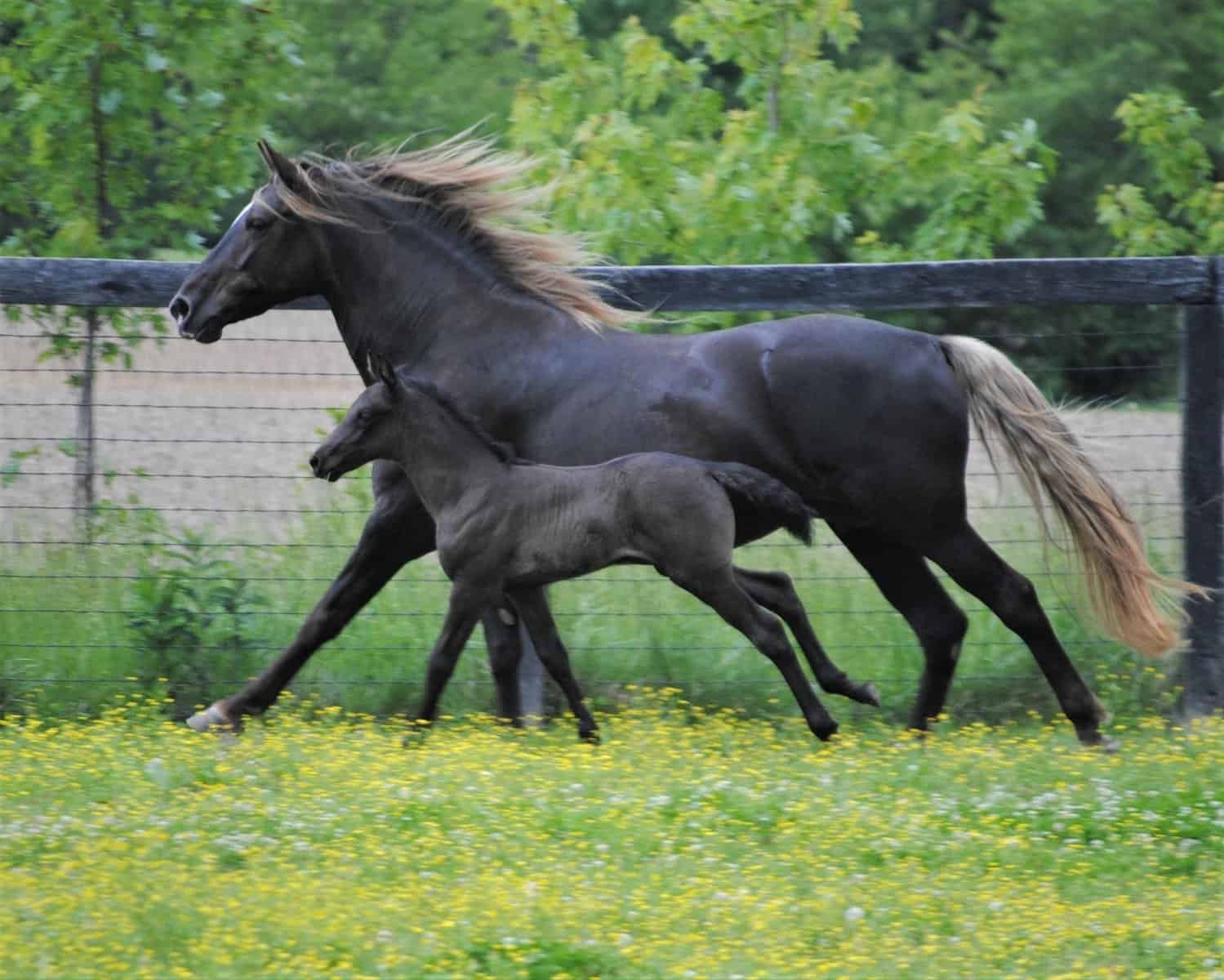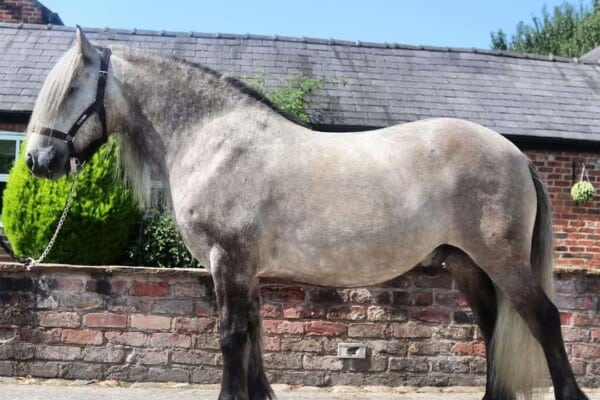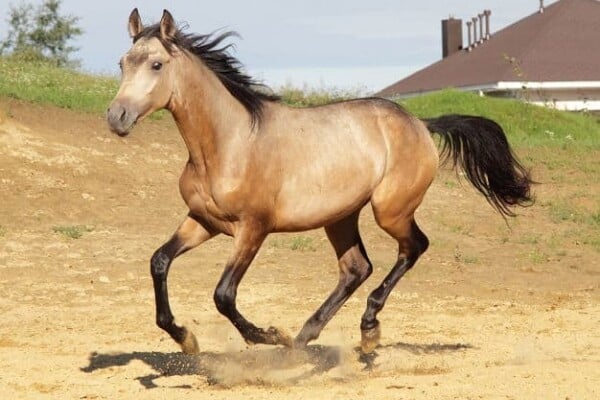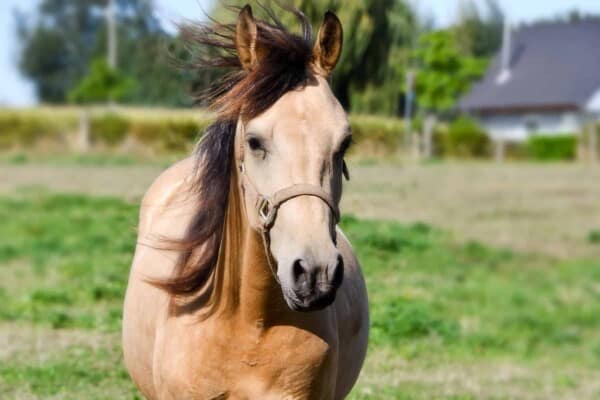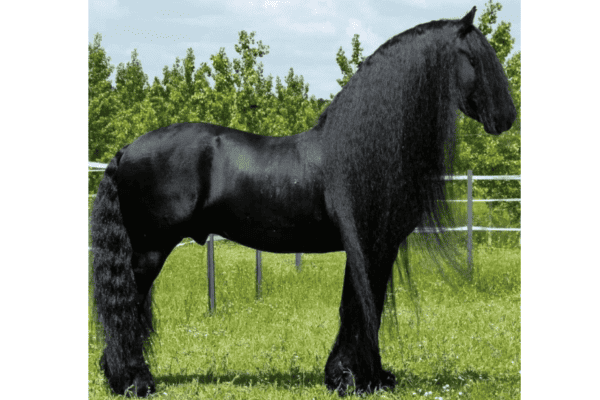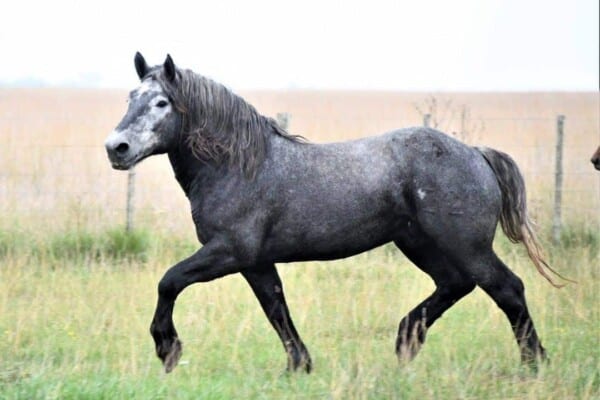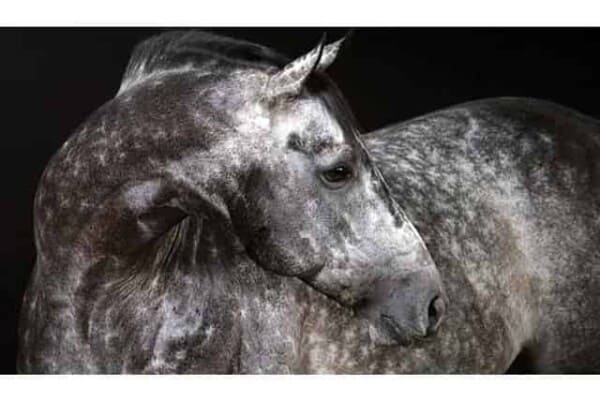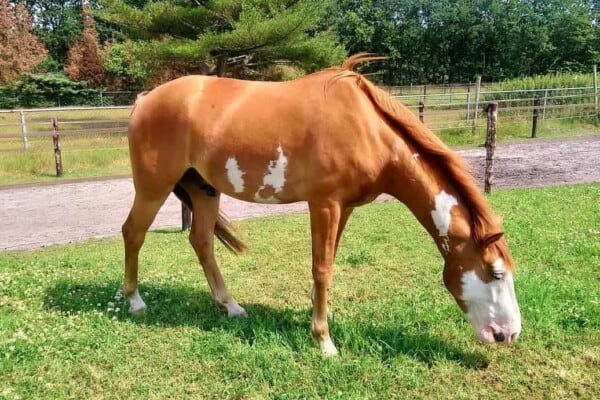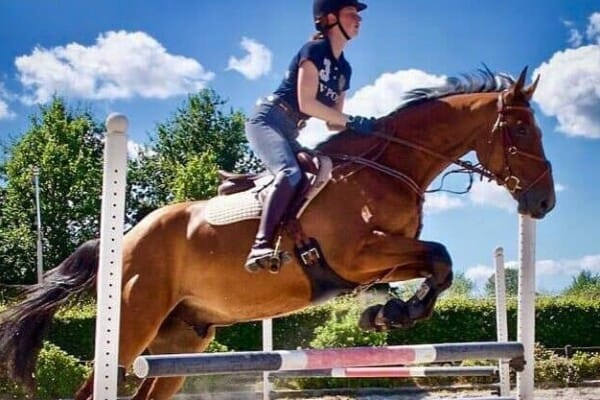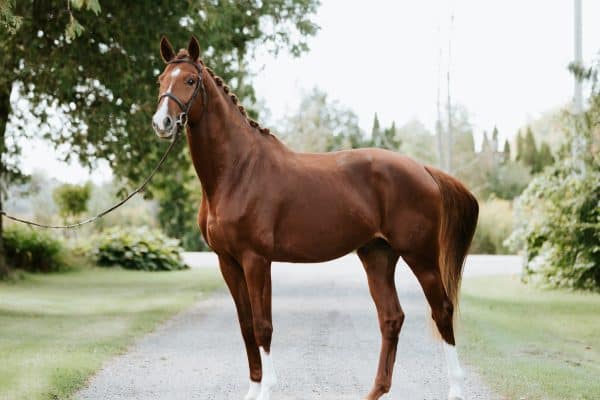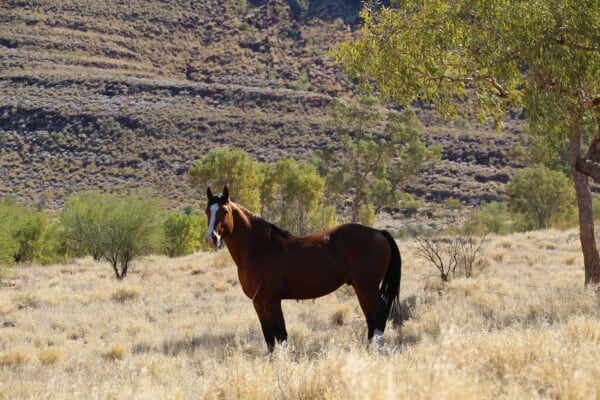Rocky Mountain horses are known for being good-natured, surefooted and hardy all at the same time.
So, it shouldn’t come off as a surprise that this is a very beloved horse breed.
By far one of the Rocky Mountain horse’s most appealing characteristics is their unique four-beat single-footed gait.
This isn’t just a purely aesthetic gait either, as it does the following:
- It helps conserve the horse’s energy
- It makes the ride smoother and more enjoyable
- It helps the horse keep up with the competition in endurance riding, trail riding and more
With that being said, that’s nowhere near the only things that you should know about the Rocky Mountain horses.
So, saddle on partner as we’re about to go over everything the Rocky Mountain horse can and can’t do.
But before we get into any of that let us first go over the brief history of the Rocky Mountain horse breed:
History and Origins
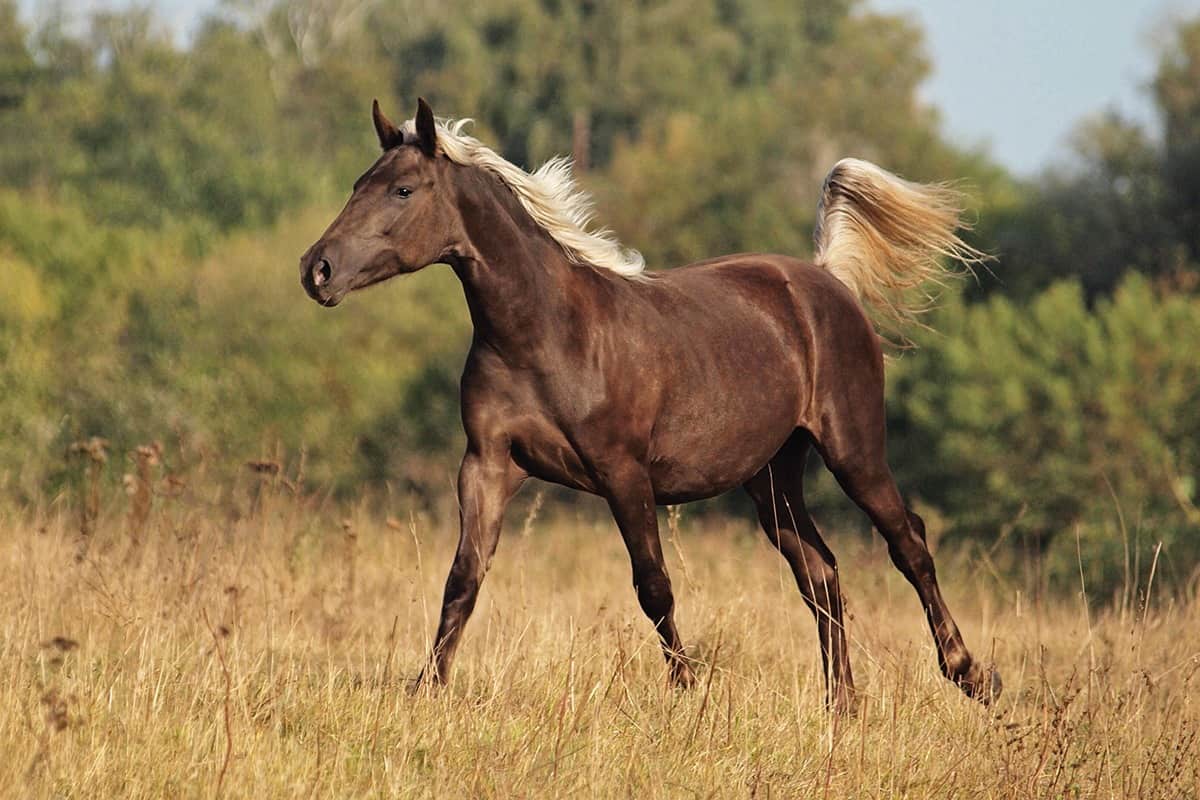
There is no concrete information regarding the history and origins of the Rocky Mountain horse breed.
Instead, its heritage is attributed to oral storytelling. So the information here has been passed down from generation to generation.
So, according to those stories, during the late 1800s and the early 1900s, these horses appeared out of eastern Kentucky.
This is where they made quite a name for themselves for the following reasons:
- These horses had a very gentle temperament
- They had their unique four-beat gait
- They were strong enough to pull heavy loads that most other breeds couldn’t
The gait was by far the breed’s most popular feature, as that became the main selling point for it.
On top of that, the horses were really versatile, being used in a plethora of practices, including the following:
- They did their time pulling plows
- They functioned as work cattle
- They even served as buggy horses at one point
Thanks to their easygoing temperament, these horses also made for a great family option. Children absolutely loved riding on Rocky Mountain horses back in the day, and they still do even to this day.
Because of how versatile this horse breed was, their numbers increased exponentially over the next couple of years.
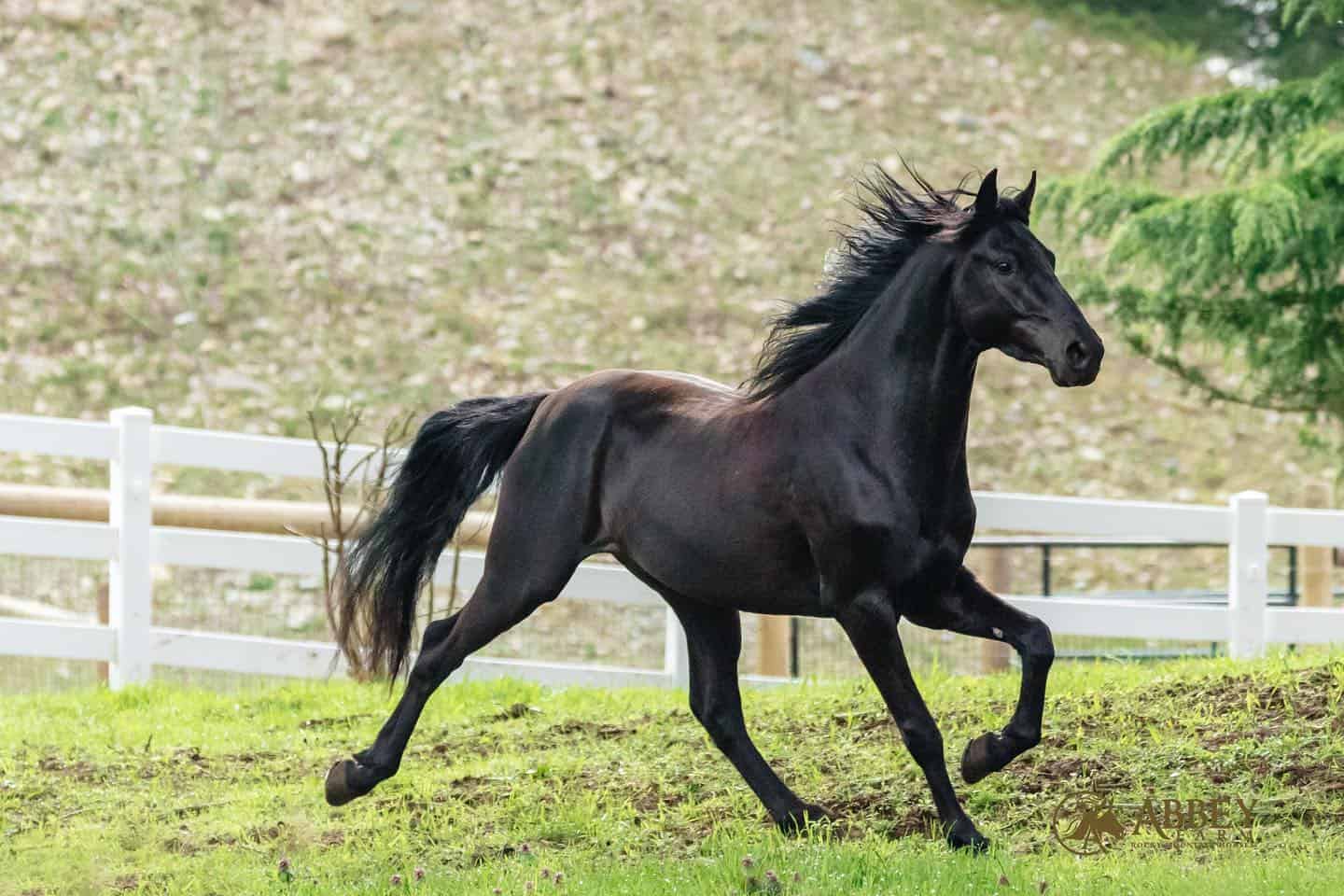
There were several attempts over the years to crossbreed them with other horses. Thankfully enough though, this didn’t dilute their genes too much.
So, the Rocky Mountain horse managed to keep its most desirable traits pretty much unscathed over the years.
Another interesting bit of history regarding the Rocky Mountain horse has to do with their upkeep.
Because their owners were not particularly rich, they were not able to ensure that their horses survived the winters.
That’s how only the strong and hardy horses managed to survive and carry on their genes.
This led to the breed becoming one of the hardiest options around, which added to their appealability.
Soon after, one of these horses was exported to eastern Kentucky where it went on to become the founding stallion of the breed.
Sam Tuttle, a man that lived in Spout Springs, Kentucky, is credited as the one to have helped spread the breed’s genes around the most. He advertised it as such:
- A safer option for inexperienced riders to cross rough terrains
- A more comfortable option for trail riders
- A gentler and hardier option to consider
The horse, who now became famous, was named Old Tobe, and he is believed to have passed on his genes to every Rocky Mountain horse to see today.
The official Rocky Mountain Horse Association was actually created in 2005. As of today, it has registered well over 12,000 horses.
Rocky Mountain Horses Size
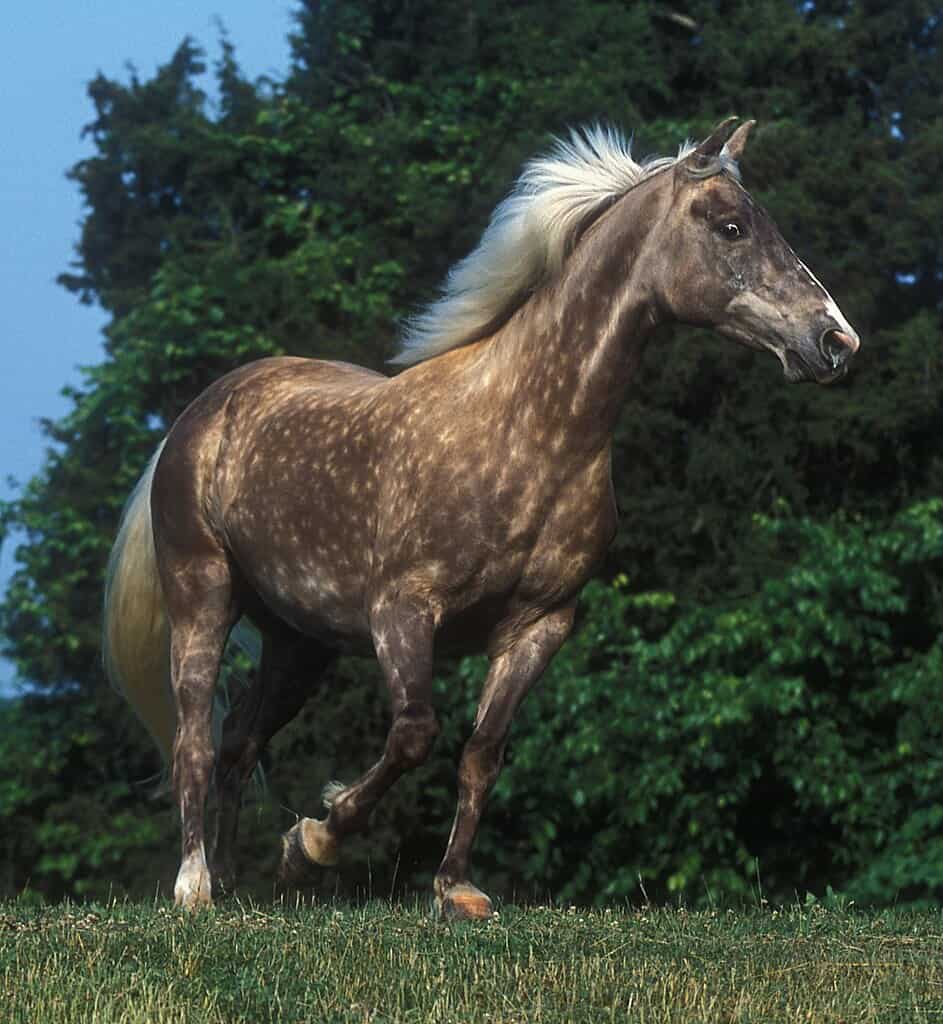
As far as the general size is concerned, anything between 14.2hh or 58in to 16hh or 64in is accepted by the Association.
If your horse is even an inch shorter or taller than that you may find yourself having difficulties entering competitions.
At the same time, Rocky Mountain horses are known for exhibiting the following traits:
- A deep chest
- Sloping shoulders
- A short back
Their ears are also well-defined and well-shaped and their head is known for being average sized.
As far as their necks are concerned, they’re arched and well-positioned to allow for a natural break at the poll.
Their very unique gait actually led to their hind legs and hooves being slightly angled too.
Breeding and Uses of the Rocky Mountain Horse Breed
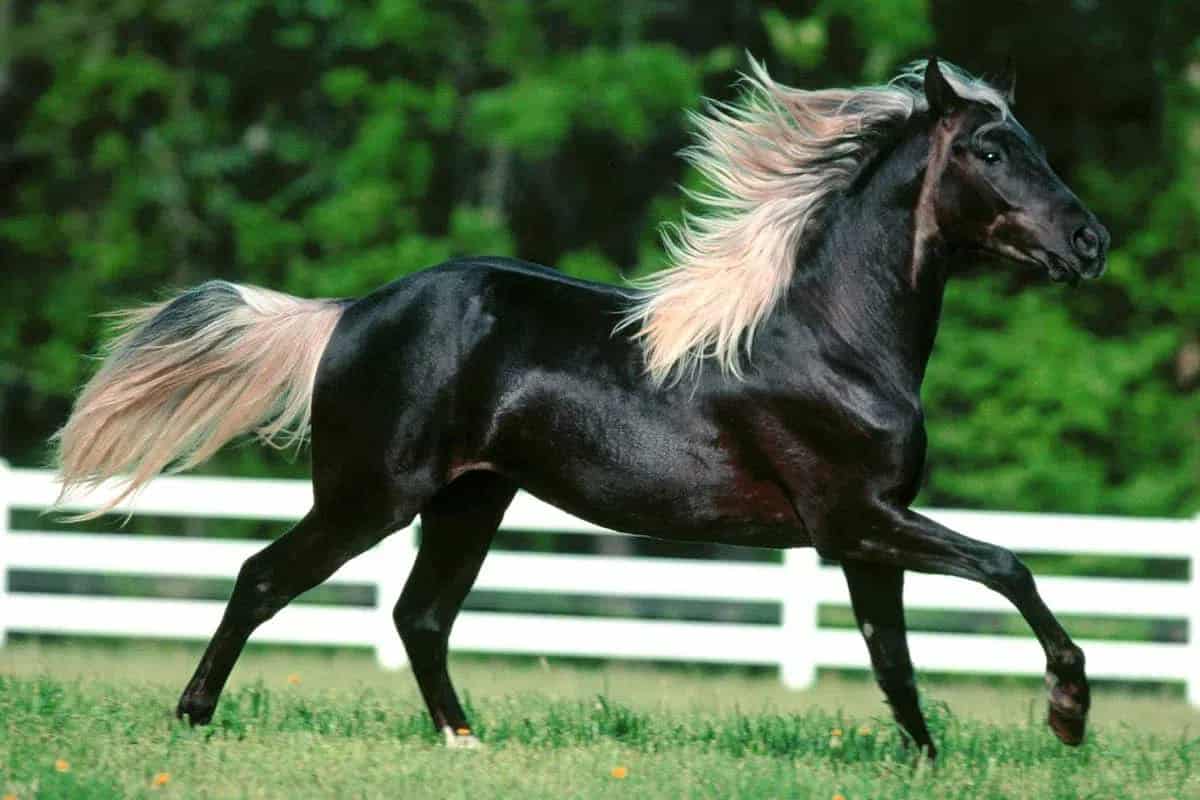
As mentioned before, the Rocky Mountain horses are highly versatile. Even to this day they are considered to be some of the most versatile horses in the world.
They are a very popular choice for pleasure riding, mostly thanks to their gentle temperament and their comfortable gait.
On top of that this horse can also be used for trail riding thanks to its surefootedness.
Its hardy nature makes it perfect for even some of the most uneven trails out there too.
The horse’s gait also allows it to travel very long distances without a care in the world.
As such, this horse breed is actually one of the most popular options out there for the following practices:
- Competitive trail riding
- Endurance riding
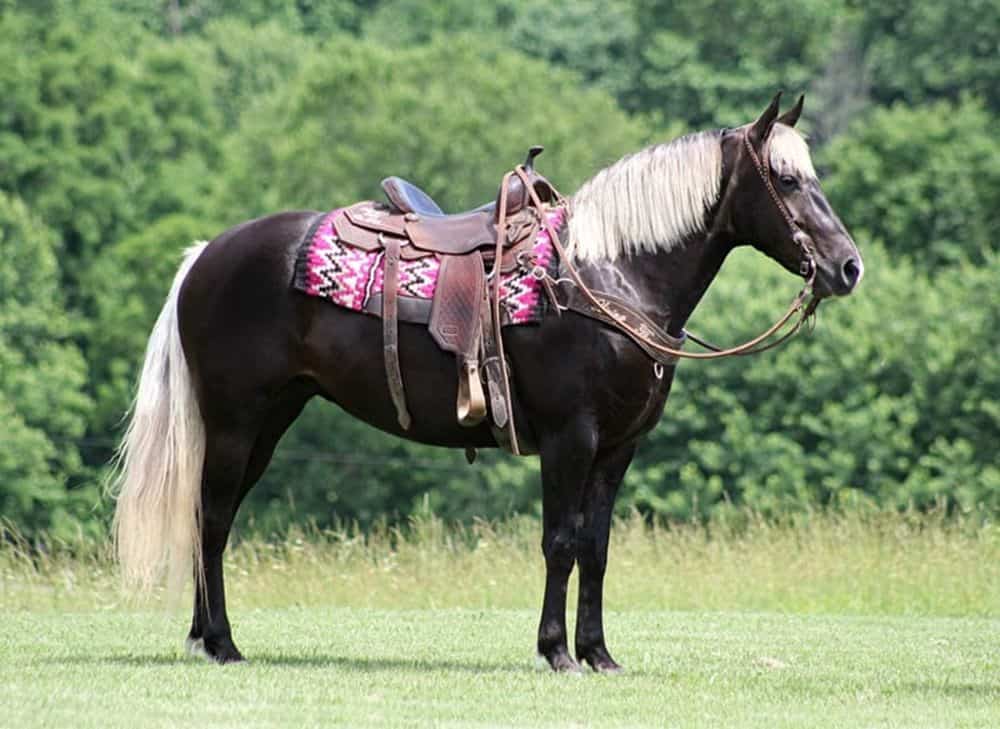
At the same time, we should also mention here how popular the breed has become in the show ring too.
This is mostly thanks to their impressive way of moving, which gives them a very luxurious and beautiful look to say the least.
This is why the Rocky Mountain horse breed has also found quite a lot of success in the following practices:
- Dressage
- Eventing
Overall, the Rocky Mountain horses are known for being docile and well-mannered enough to be ridden by anyone out there.
They even make for a great option for children since they are so easy to take care of and friendly.
They have also been used a lot as cattle horses, although this is nowhere near their most popular usage.
Rocky Mountain Horses Colors and Markings
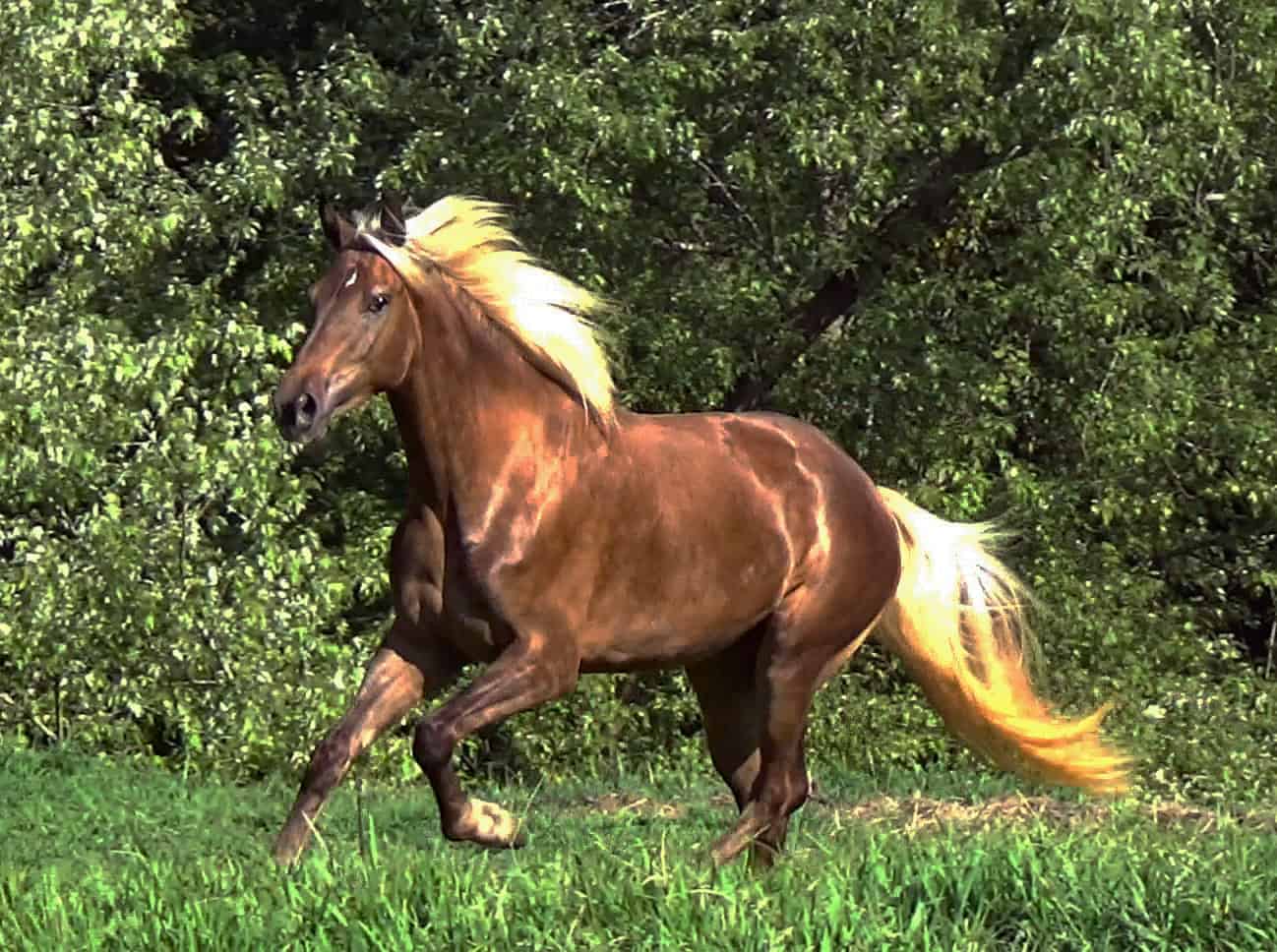
Rocky Mountain horses’ coats are always going to be solid colored.
By far the most popular look for the breed is also the chocolate coat color with a flaxen mane and tail.
Other than that, you may also come across the following color variations:
- Black
- Bay
- Palomino
- Chestnut
An important thing to note here is that the Rocky Mountain Horse Association does not accept any horse that has white above the knee or the hock.
This means that if your horse does exhume those traits, then you can’t enter any official competitions with them.
Another thing to keep in mind is that your horse also can’t have excess white on your face.
So, if your Rocky Mountain horse has any markings such as a bald face marking, it will have a lot of trouble being accepted into the registry.
Unique Characteristics of the Rocky Mountain Horse Breed
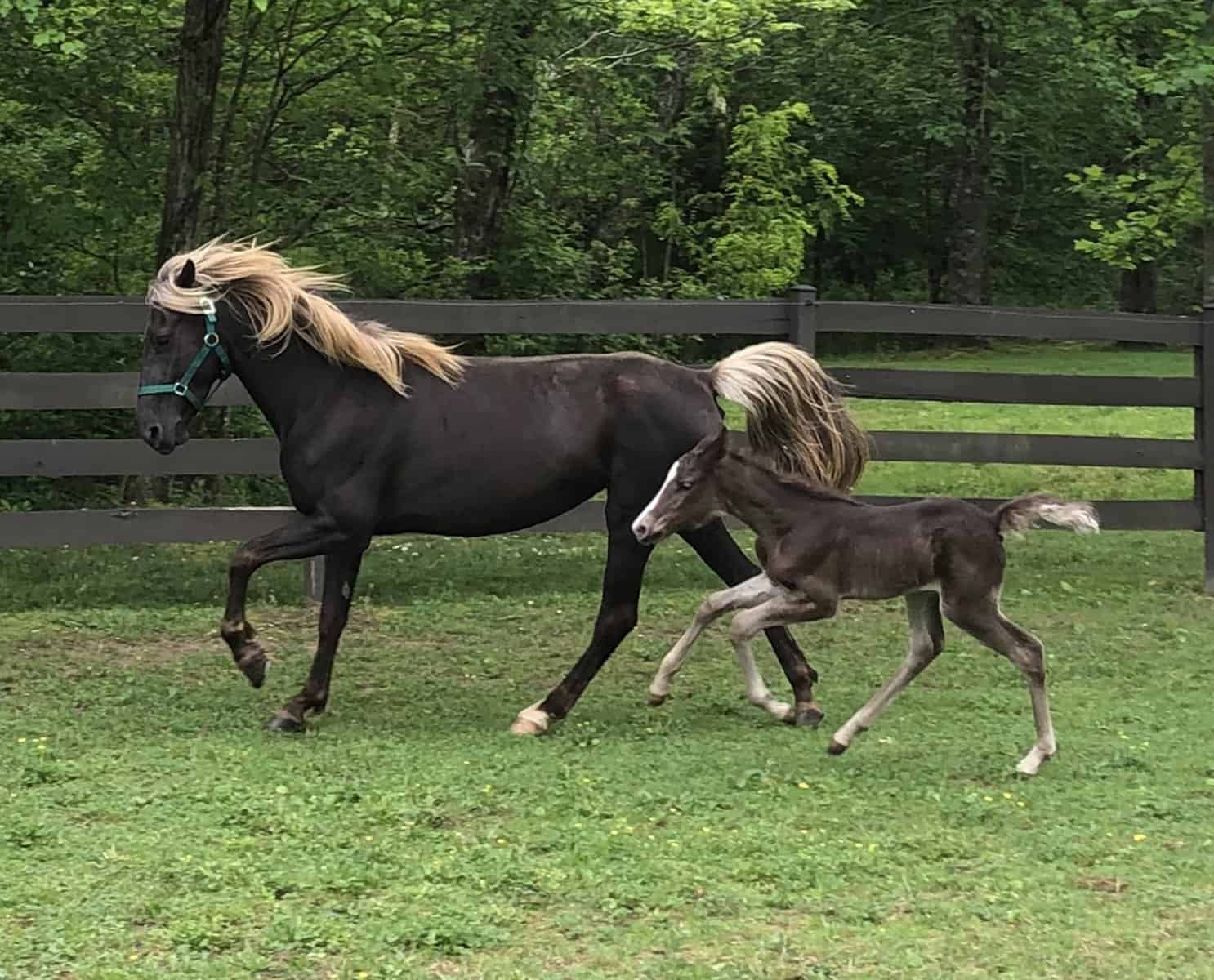
The Rocky Mountain horse’s most popular characteristic is definitely its natural ambling gait.
This four-beat gait is the main reason why it has remained popular over the years after all.
The gait is also known for completely replacing the trot, as the horse now follows the four-beat footfall pattern instead.
So, your horse will now always have a foot on the ground as the other three are lifted which makes the ride a lot smoother and more majestic looking.
Doing this also has its practical benefits, as your horse can now travel great distances without tiring doing this gait.
While there are only around 20,000 Rocky Mountain horses nowadays, it should be mentioned that a great majority of them can be found in Kentucky.
So, if you happen to be living in Kentucky, you will easily find your very own Rocky Mountain horse.
Rocky Mountain Horses – Diet and Nutrition
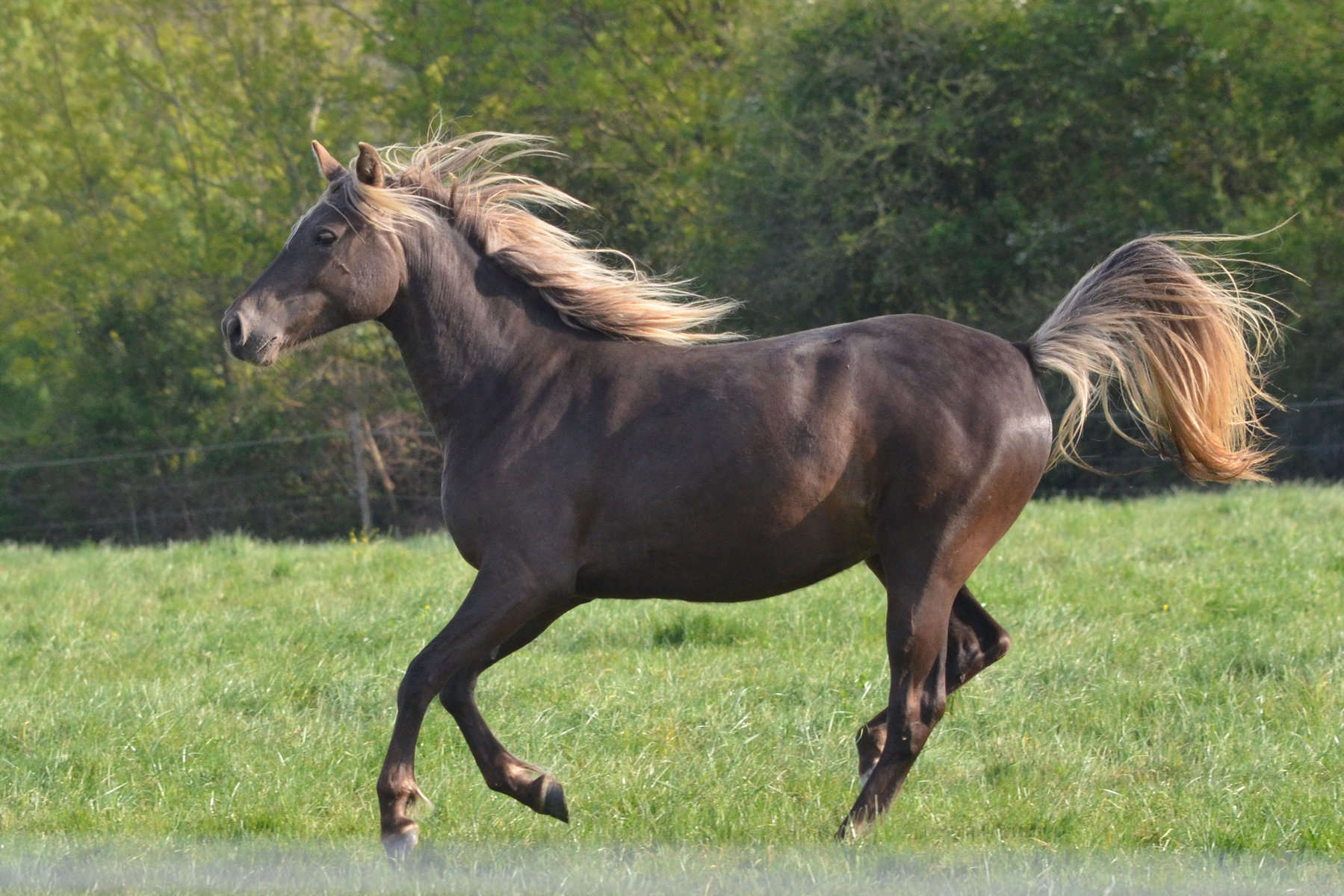
In order to live a good and happy life, Rocky Mountain horses require a healthy balance of the following in their diet:
- Proteins
- Carbohydrates
- Fats
- Minerals
- Water
- Vitamins
They can easily survive off of a diet consisting of the following too:
- Fresh grass
- Hay
- Rolled oats
- Other grains such as bran and barley
You can also feed your Rocky Mountain horse apples and carrots as treats, but just keep in mind that they can also get fat really quickly.
So, if you do want to give them a treat go for it, just make sure to do so in moderation.
Common Health and Behavior Problems
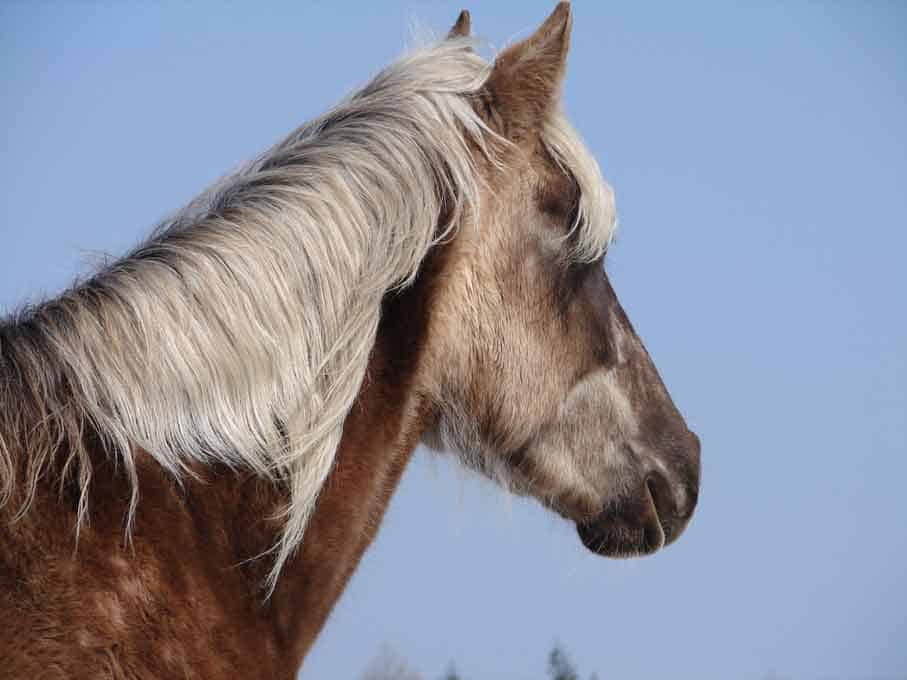
Rocky Mountain horses are known for exhibiting the following traits:
- They’re very easy to train
- They’re very gentle beings
- They’re very eager to please their riders
At the same time, they are prone to a lot of health issues, including but not being limited to the following:
- Hyperkalemic periodic paralysis
- Polysaccharide storage myopathy
- Malignant hyperthermia
Rocky Mountain Horses Grooming Needs
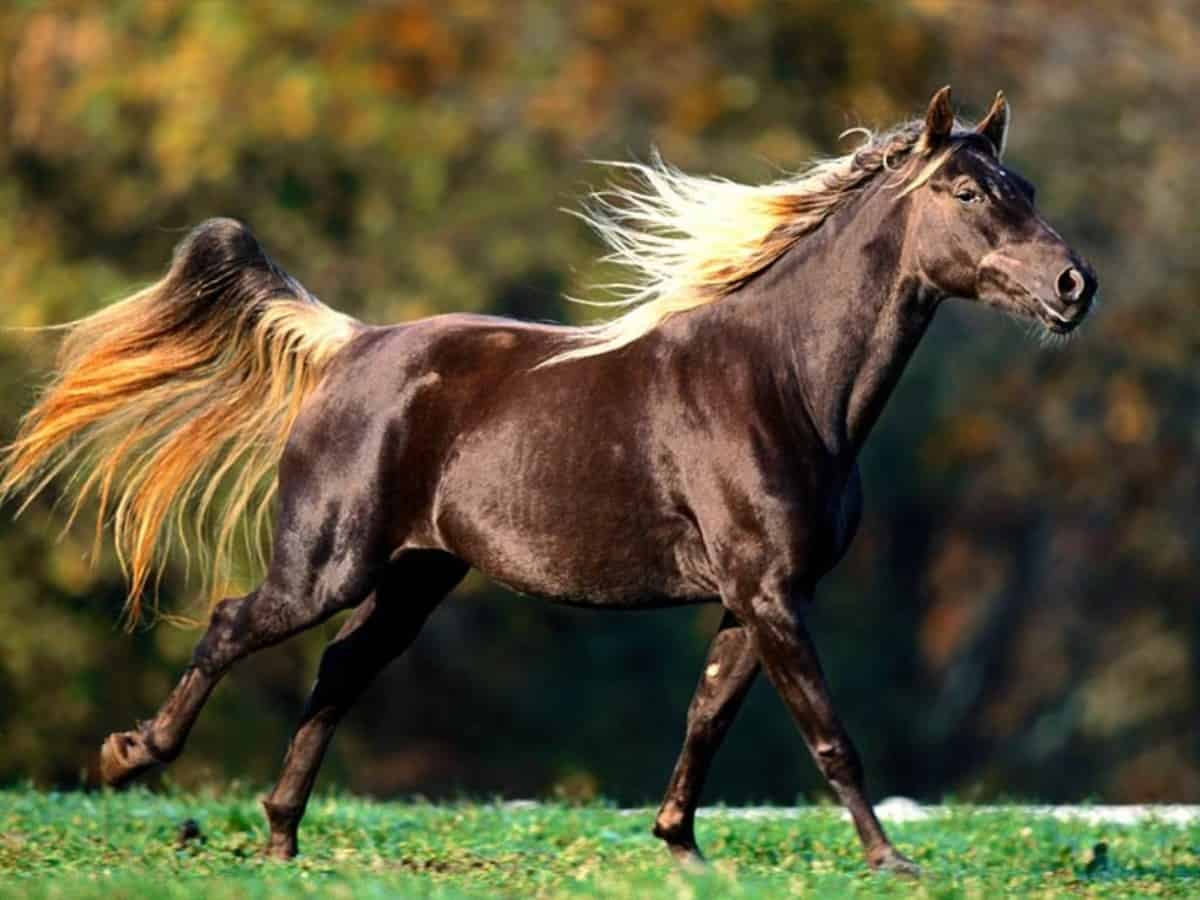
There are more than a handful of grooming tips you need to follow to ensure that your Rocky Mountain horse has a healthy coat and a clear skin.
So, before every ride you will need to do the following:
- Brush the horse’s legs, face girth and saddle areas
- Pay special attention to places that seem to be less oily or too oily
- Use a detangler to brush out the horse’s tail
At the same time, we recommend that you do this before and after a serious ride.
After all, your horse will get tired eventually and it will start to sweat which won’t do its skin and coat any good if you don’t take care of it.
During winter time, we also recommend that you use a waterless shampoo to clean out your horse’s coat.
Last but not least, you should make sure that you detangle the horse’s mane and tail so as to avoid any clumping happening.
Advantages and Disadvantages of Owning a Rocky Mountain Horse
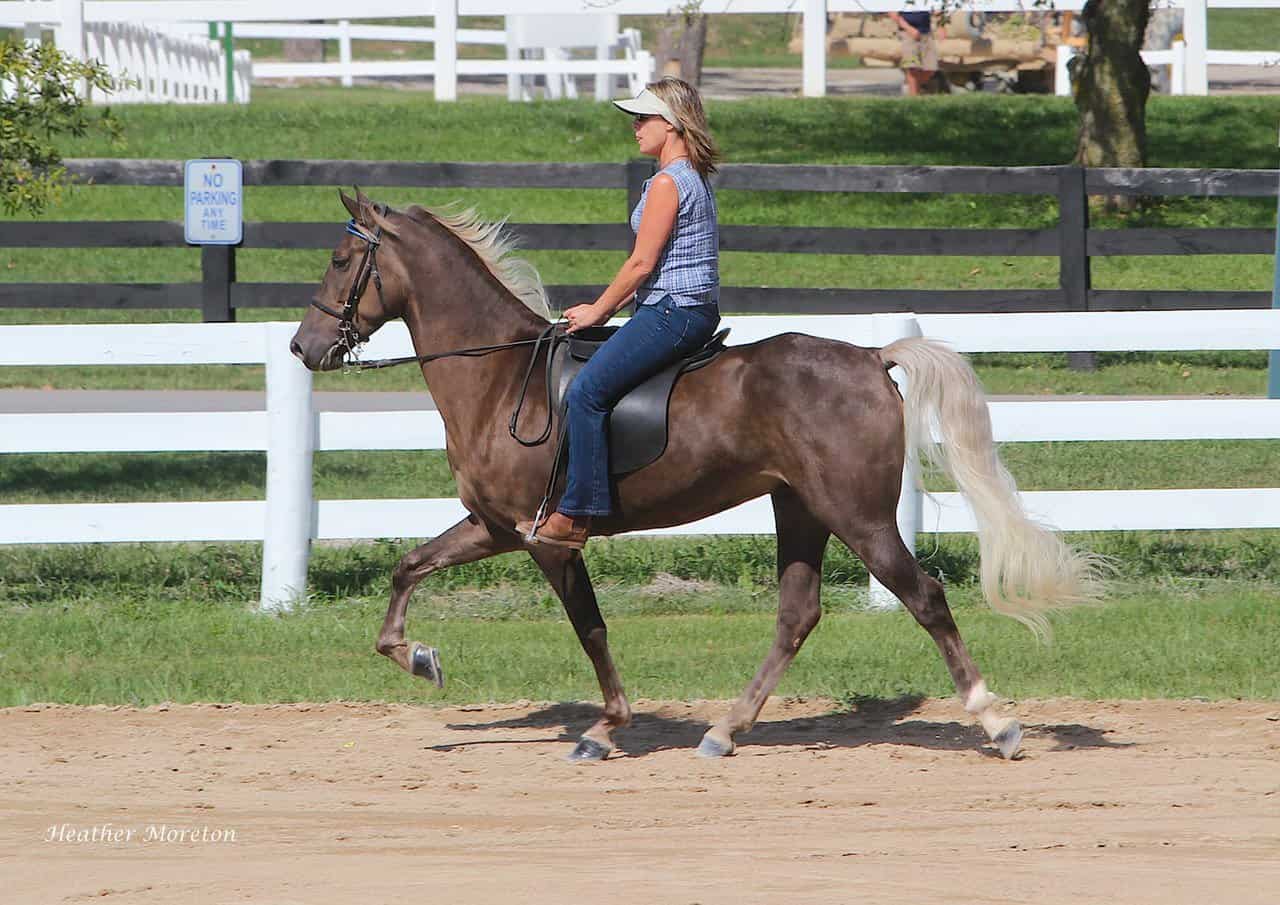
A lot of people like to focus on only the positives or the negatives when it comes to owning a horse breed, which is quite unfair for the horse.
After all, each and every horse breed has its own fair share of pros and cons.
At the end of the day, you just need to look into everything the horse has to offer and you need to choose the one that you believe is better suited for your needs.
With that being said, the Rocky Mountain horse breed will still have its own fair share of advantages and disadvantages that you need to look out for.
By far the most popular and well-known advantages that this horse breed typically has are the following:
- They are very calm and collected animals
- They are very good with children and families in general
- They have a natural ambling gait which makes them very good for pleasure riding purposes
- They are really good trail horses
- They are very versatile animals that can be taken into most sports or practices
While the pros are really good, the cons are also worth keeping in mind.
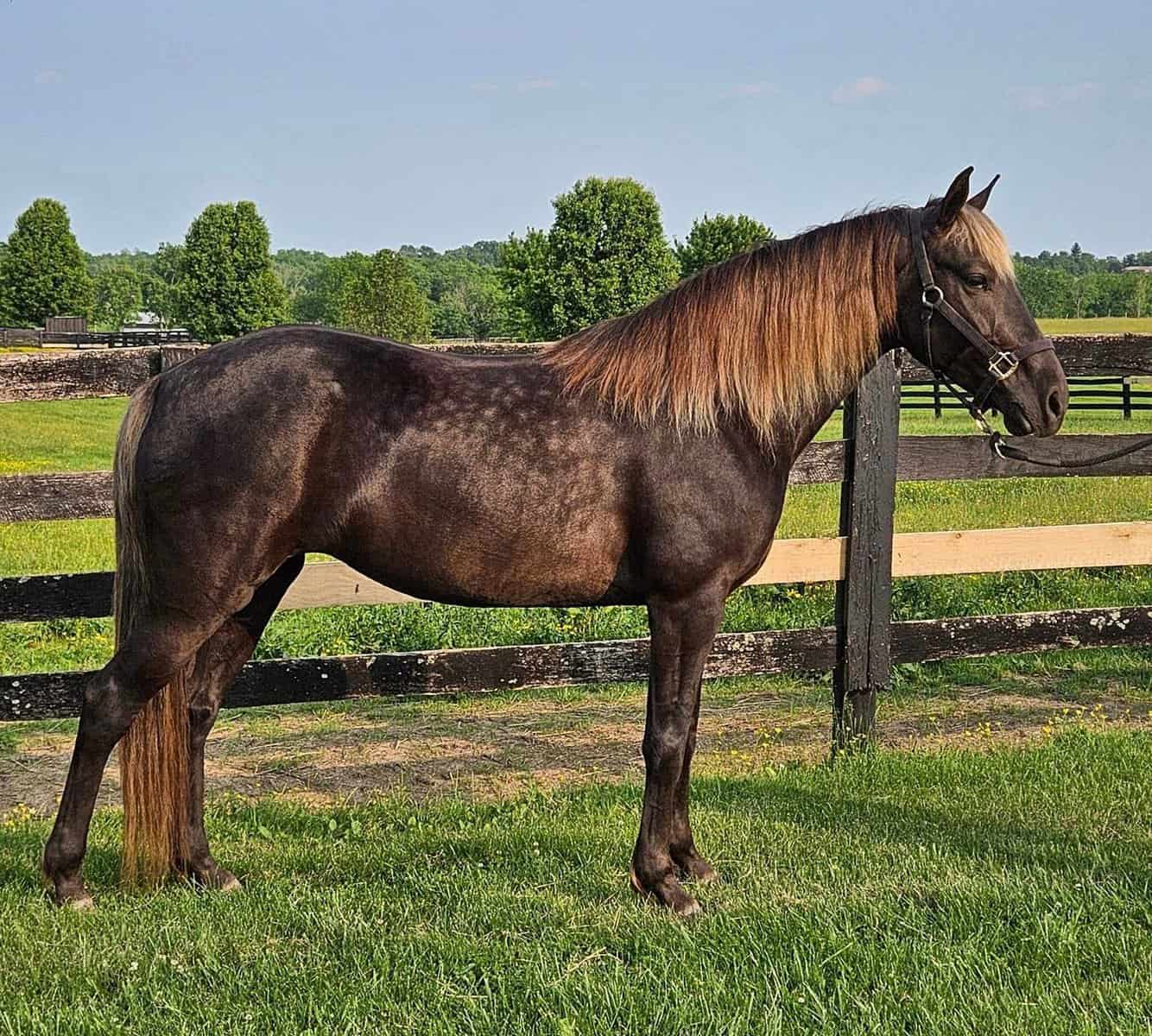
So, here are the most common disadvantages that are usually mentioned when considering picking a Rocky Mountain horse:
- These horses either can’t or they just simply won’t learn other riding styles such as trotting or cantering
- They are prone for a lot of different chronic health problems
- They can end up developing chronic lameness if they are either overworked or overridden
So, if you like the sound of the advantages and you believe them to outweigh the disadvantages consider getting a Rocky Mountain horse.
At the same time, if you can’t stomach some of those disadvantages then stay as far away from them.
Also try to remember that while these are common traits for these horses, they don’t apply to every individual out there.
At the end of the day every horse is different and they each have their very own personal biases so keep that in mind before making your final choice.
Famous Rocky Mountain Horses
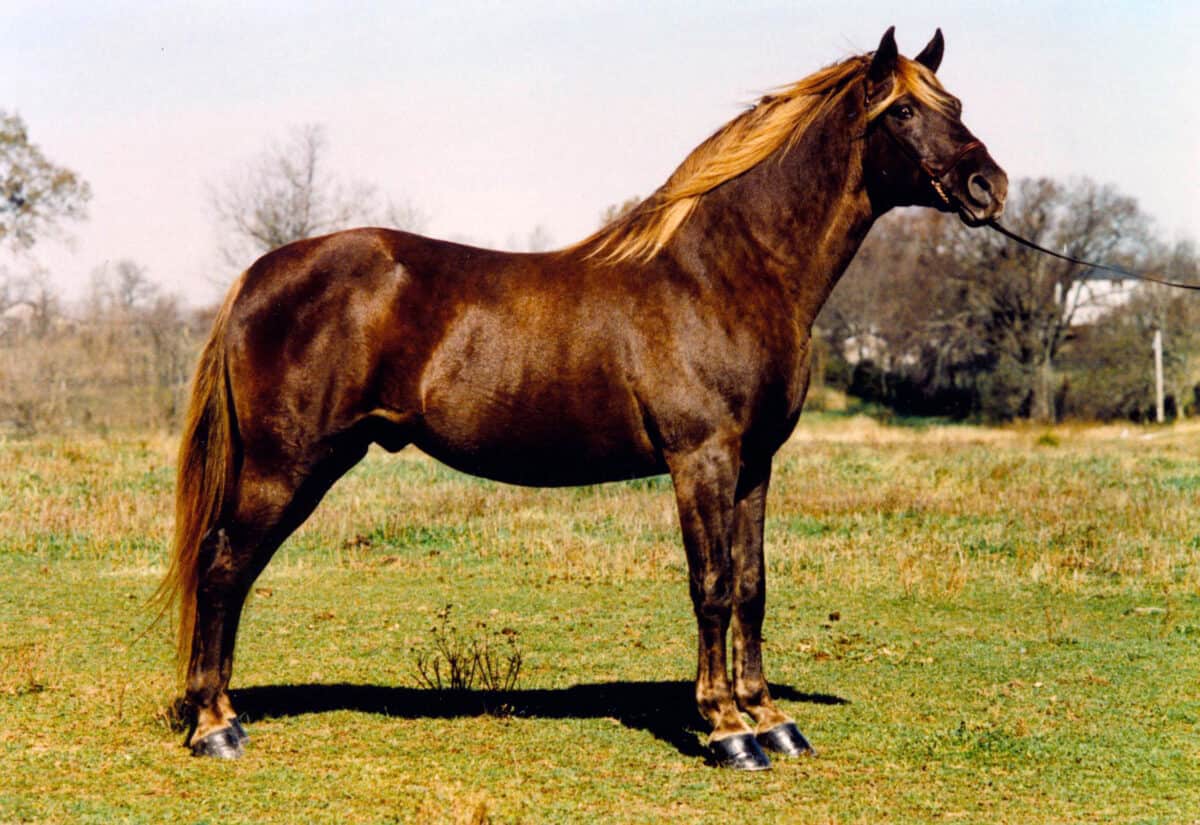
Old Tube is by far the most popular name associated with the Rocky Mountain horses, and for good reason too.
This stallion has spread his genes all the way up to today’s Rocky Mountain horses after all.
He died at the age of 37, but before that he was actually known for his incredibly calm nature and gentleness.
There aren’t all that many other famous Rocky Mountain horses, which is because they don’t excel in any practice on their own.
So, they are jacks of all trades, they are capable of doing everything at once. But they are also incapable of playing with the toughest competition at the highest level.
Is the Rocky Mountain Horse Breed the Right One for You?
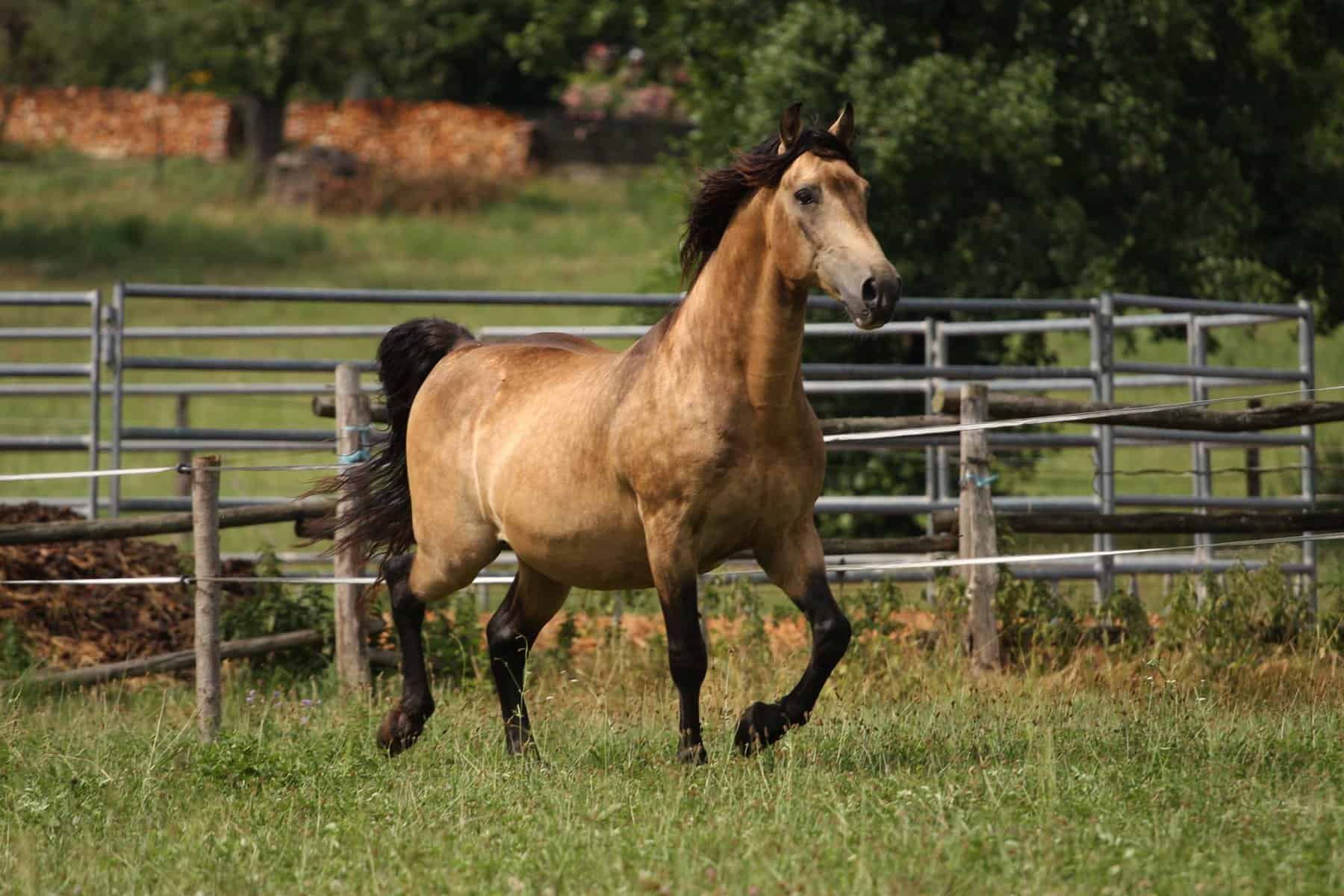
Thanks to its great temperament, the Rocky Mountain horse breed is known for being a perfect fit for the following:
- Children
- Adults
- Beginner riders
At the same time, their versatility makes it so that you can cross disciplines with them. So you can perform quite admirably in any of the following practices:
- Trail riding
- Show ring
- Pleasure riding
Their natural gait is also worth mentioning here as an advantage too. This makes this breed the perfect choice for older riders that suffer of chronic joint or back pain.
The Rocky Mountain horse breed is also a very hardy breed that can do well in cold temperatures, although it may need a bit of help in hot climates too.
There aren’t all that many Rocky Mountain horses out there too, which is why they typically cost a bit more than the average horse.
Still, if you like the sound of owning a limited horse breed, we don’t see why you shouldn’t do it.
Keep in mind the advantages and disadvantages we talked about above and make your choice based on that.
Conclusion
If you like the sound of the Rocky Mountain horse breed but you can’t find one for yourself, consider one of the following alternatives:
- The Morgan Horse
- The Kentucky Mountain Saddle Horse
- The American Standardbred
All these options are amazing on their own, and they’ll fit the bill for whatever you need them for.
At the same time, we still recommend that you try to get your hands on a Rocky Mountain horse if you have the chance to.
After all, it is one of the most versatile and friendly horse breeds on the market, although this also reflects on their final price so keep that in mind.
Frequently Asked Questions (FAQ)
What Breeds Make Up a Rocky Mountain Horse?
It is believed that the original Rocky Mountain horse stems from the American Saddlebred and the Tennessee Walking horse.
What is a Rocky Mountain Horse Good For?
Rocky Mountain horses are very versatile, and they can be used in most any discipline out there.
Still, this breed is most used in the following practices:
- Pleasure riding
- Trail riding
- Endurance riding
- Competitive riding
How Rare Are Rocky Mountain Horses?
There are around 15,000 to 20,000 Rocky Mountain horses in the US right now, with around half of those living in Kentucky.
How Big Do Rocky Mountain Horses Get?
The average purebred Rocky Mountain horse should be no less than 14hh or 56in and no more than 16hh or 64in in height.
These horses are average-sized, with most of them weighing between 850 and 1,000lbs or 385 to 450kg each.
Can Rocky Mountain Horses Gallop?
Rocky Mountain horses can perform all the other gaits that other horses can, such as the walk, the trot, the gallop and the canter.
Contents
- History and Origins
- Rocky Mountain Horses Size
- Breeding and Uses of the Rocky Mountain Horse Breed
- Rocky Mountain Horses Colors and Markings
- Unique Characteristics of the Rocky Mountain Horse Breed
- Rocky Mountain Horses – Diet and Nutrition
- Common Health and Behavior Problems
- Rocky Mountain Horses Grooming Needs
- Advantages and Disadvantages of Owning a Rocky Mountain Horse
- Famous Rocky Mountain Horses
- Is the Rocky Mountain Horse Breed the Right One for You?

